The History of Historical Films
Vlad Țepeș (Ștefan Sileanu), the symbol of order at any cost, is like a local version of Ivan the Terrible, whose story was adapted to screen in 1944 by Sergei Eisenstein.
This week we embark on a historical potpourri with three productions from the House of Film Five. We delve into The Immortals (1974) and Mercenaries' Trap (1981) by Sergiu Nicolaescu, as well as Vlad the Impaler (1979) by Doru Năstase. Among these three films, only the latter is part of a specific endeavor to promote pre-Romanian historical figures, while the others present themselves as glorifications of the masses—portrayed, in reality, as a small group, most often under the authority of a dominant figure, dedicated to the country's ideals, thus creating a true national mythology.
For those unfamiliar with the organization of film houses in the Ceaușescu era, the House of Film Five was the star of the studios. It produced the largest number of films and generally focused on blockbusters, historical films from the national epic, as well as the most important co-productions of the period. Consequently, the directors who received projects from this house were also the most ideologically aligned to the party.
Of course, among them, the one who stood out the most was Sergiu Nicolaescu, who himself had problems with the Securitate, not necessarily due to political issues, but rather because of his personal feuds. A detailed report on the filmmaker's dossier can be found in Bogdan Jitea's book Cinema în RSR — Conformism și dizidență în industria ceaușistă de filme, a comprehensive work on the most popular art form in the Ceaușescu era and the strategies of organization or resistance of filmmakers.
An important point about the direction in which the national myth is being shaped in these films is particularly evident in The Immortals, where the xenophobic message becomes increasingly clear, signaling the national direction that Romanian communism is gradually taking. In the odyssey of The Immortals, a few soldiers from the army of Michael the Brave head home, carrying with them the flag of the three united Romanian provinces.
Besides the flag, the soldiers also carry a chest of gold coins. However, this treasure of Michael turns out to be *spoiler alert* nothing more than a pile of rocks. Costea (Ion Besoiu) and Captain Andrei (Sergiu Nicolaescu) conceal the truth from the other soldiers and prove by the end that the ideal, and not the gold, weighs heavier for true Romanians.
Mercenaries' Trap is a film that clearly showcases Nicolaescu's interest in playing with various versions of heroism, of Romanians' struggle in any context. He models his narratives on a similar set of data to produce a predictable trajectory or characteristic of the nation.
It's no wonder, and not a matter of authorship, that the Mercenaries' Trap resembles The Last Assault (1985). And it’s not a matter of communism the fact that Nicolaescu’s 1993 The Mirror is a biopic of Ion Antonescu (Ion Siminie), built on the same rationale.
The national epic is a chauvinistic project. Vlad the Impaler is quite humorous in this regard. In it, Țepeș (Ștefan Sileanu), the symbol of order at any cost, is like a local version of Ivan the Terrible, whose story was adapted to screen in 1944 by Sergei Eisenstein.
While Eisenstein's mogul, paranoid and vengeful, fights the conspiratorial nobility and gradually sinks into the darkness of his empire and madness, in Tănase’s Vlad the Impaler, a similarly controversial figure, shines brave and uncompromising. Vlad the Impaler is an uncontroversial Ivan the Terrible, but a somewhat glossier film than Nicolaescu’s Michael the Brave.
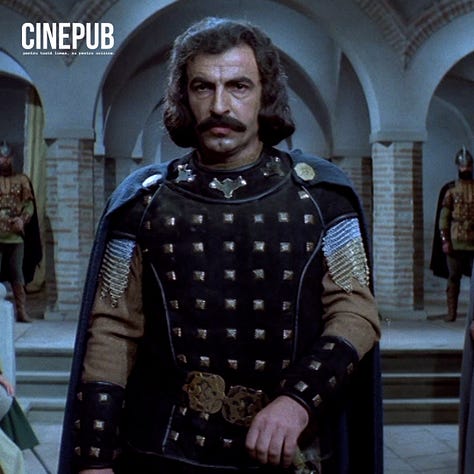
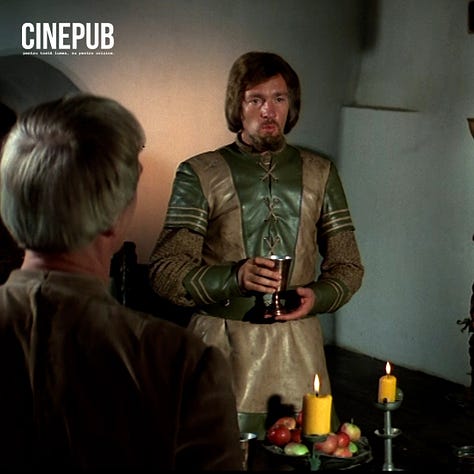
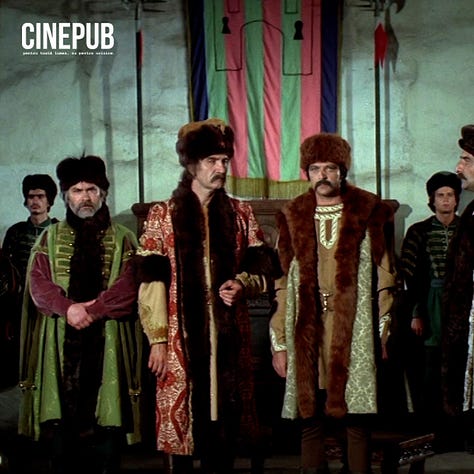
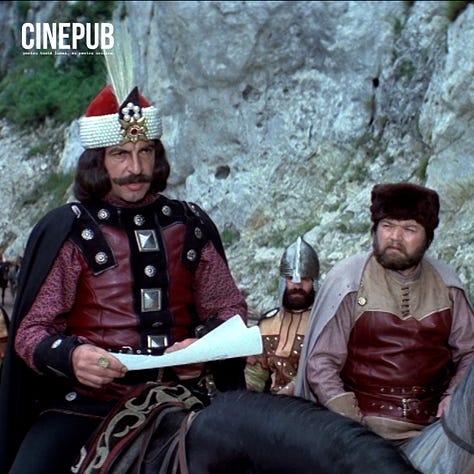
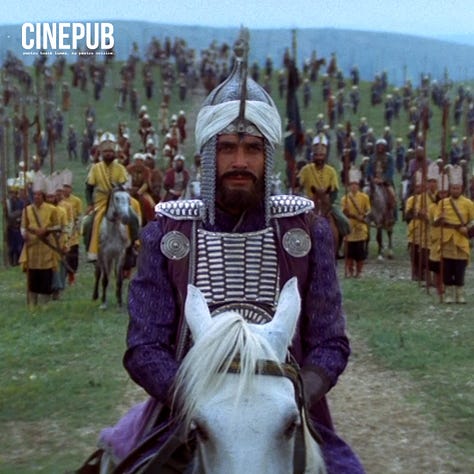
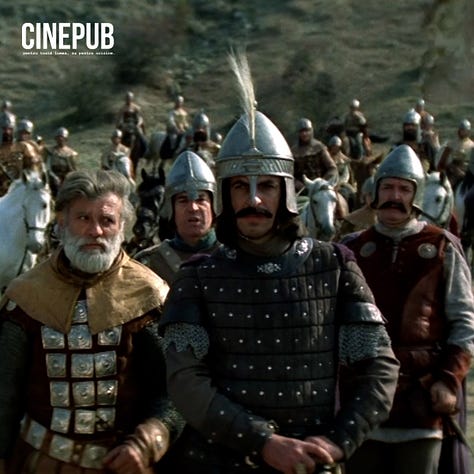
And since we mentioned Michael the Brave, I'll leave you with two texts previously published in our newsletter on the occasion of the film's premiere. The first one is called Broken, Myth Making Bones, where I briefly write about the development of Romanian stunt work as a consequence of these immense historical productions. And the second, entitled Popular Demand, is a text in which Lucian Georgescu, founder of Cinepub, recounts an incident featuring director Sergiu Nicolaescu and discusses audiences and the successes they guarantee.
(Emil Vasilache, cinepub.ro)
This week's premiere: Vlad the Impaler (1979) by Doru Năstase, Thursday, March 7th, at 8:30 p.m EEST, on CINEPUB.RO
This premiere is part of a national archive project supported by the Romanian National Film Centre. Special thanks goes to the Romanian Filmmakers Union and to the Romanian Film Archive.
Cinepub is the one and only, legally operating and free of charge, AVoD platform, dedicated to the Romanian cinema: independent, contemporary, or classic. Our comittment to remain “free” means hundreds of monthly hours of volunteer work of a (very) small team of passionate individuals.
Your donation can help us cover some of the costs of securing some distribution rights, covering the basic costs or just keeping the platform updated; in a nutshell, to survive! If you like what we do, if you read what we write, if you watch the films we show, consider supporting us.
We need your help. Thank you!







